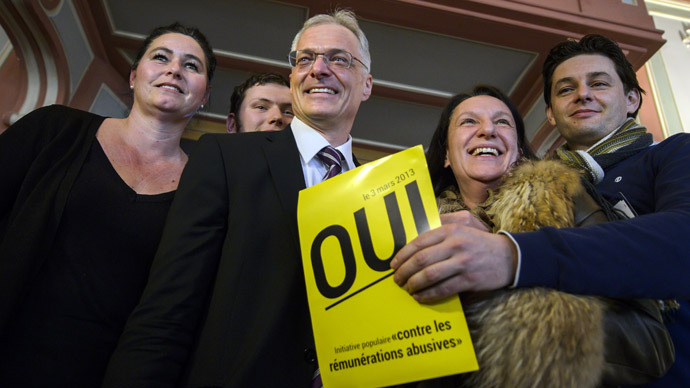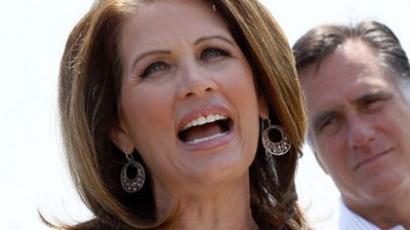Golden Goodbye: Switzer voters take ax to corporate pay deals

Switzerland is set to impose some of the world’s strictest curbs on executive pay following a national referendum which will force companies to get shareholder approval on “golden handshake” compensation deals among a raft of other measures.
Around 68 percent of voters support the “Rip-off Initiative”,
according to projections by Swiss public television station
SRF.
If the initiative passes, shareholders will not only be given the
right to hold a binding vote on both salary and bonuses for
executives and directors, one-off bonuses for senior managers
joining or leaving the company would be banned.
Apart from putting an end to “golden hellos” and “golden goodbyes”,
all loans to executives will also have to be declared to
shareholders.
The changes will apply to all publicly-traded Swiss-based companies
– both domestic and offshore.
Fines of up to six annual salaries and up to three years in prison
will be levied against violators of the new rules.
The Swiss public have mobilized around the proposals despite
intense campaigning from business lobby group Economiesuisse, which
argues the measures will drive away business, generate unemployment
and destroy competitiveness.
Christa Markwalder, a lawmaker with the pro-business Free
Democratic Party, warned foreign companies seeking to benefit from
lower taxes and less strict regulations would be less inclined to
move their headquarters to Switzerland
Despite the proposal’s detractors, public opinion increasingly
shifted towards a “Yes” vote two weeks ago following the
announcement that outgoing chairman Daniel Vasella was to receive
$78 million over five years from the Swiss drug maker Novartis AG
in exchange for not signing on with a competitor.
Similarly large bonuses were also blamed for encouraging risky
investments which almost sank Swiss banking giant UBS.
Opponents admitted their efforts to warn about the economic
implications of the referendum had fallen flat despite an 8 million
franc war chest set aside to defeat it.
"We will respect the will of the people," said Pascal
economiesuisse chairman Pascal Gentinetta said.
The initiative was spearheaded by Swiss entrepreneur and
independent lawmaker Thomas Minder.
Minder, who introduced the proposals to end a culture of
short-termism which he says is out of step with Swiss culture, said
the referendum’s popularity is “a powerful signal."
“Even though Swiss people earn good money and have a high
average salary, we also have a strong traditional feeling about
what is good corporate governance,” The Independent cites
Minder as saying earlier this week.
“You can have your second home, you can drive your Ferrari, you
can eat beef every day, but Swiss people are middle class, with no
extreme highs or lows.”
Other European states such as the Netherlands and Denmark have
comparable legislation allowing shareholders a binding vote on
executive compensation.
In the US and Britain, however, so-called “say-on-pay” votes are
non-binding.















